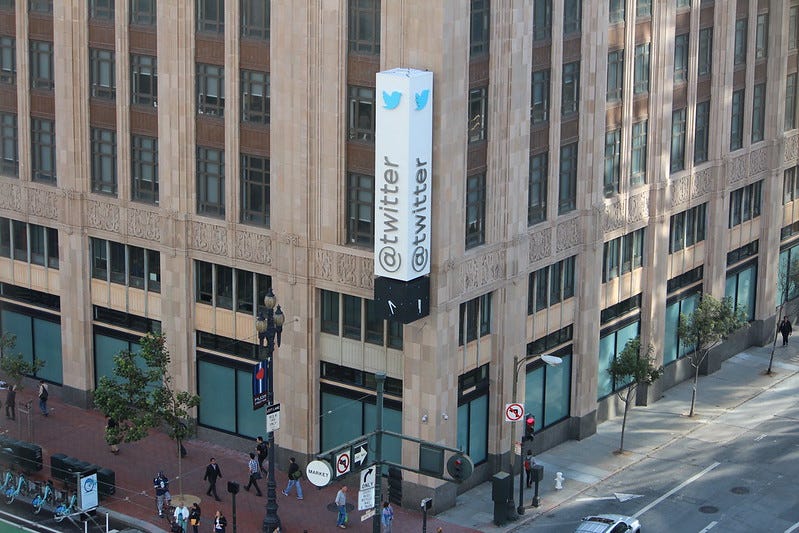Be careful doing business with Twitter
$11, TOPS
Welcome to Mostly Cloudy! Today: why it might be about to get weird for enterprise software companies that have outstanding invoices with Twitter, another SPAC goes splat, and Marc Benioff picks a curious way to rally the troops ahead of a challenging year for Salesforce.
Photo courtesy Flickr user Mike Davis/cc 2.0.
Contract labor
In two months since Elon Musk closed his $44 billion deal to buy Twitter, which saddled the company with an enormous amount of debt, several cost-cutting measures have followed. More than half the staff was laid off, Musk’s team began looking for ways to cut spending on servers, and the company even put its cafeteria equipment up for auction.
But Imply Data, makers of the Druid database, alleged last week that Twitter violated an enterprise software contract that was supposed to run through 2024 by refusing to pay the latest installment due by the end of November. Twitter had received and approved an invoice prior to the close of the takeover, according to a court filing, but deleted the invoice some time in November and ended the contract, which required Twitter to pay Imply Data $8 million over the rest of its term.
Cash-strapped companies play games with invoices all the time, such as “losing” the first copy in order to buy themselves another 30 days or so before accepting it into their system. But as the quarter and year come to an end, enterprise tech companies that have outstanding invoices with Twitter might want to take stock of how prepared they are to have to sue it to get paid.
If this strategy sounds familiar, it’s because it is.
Ave Maria
The special-purpose acquisition corporation (SPAC) looks like it will be a historical marker of misguided investor frenzy in tech over the past three years, given how badly those reverse-merger IPOs have performed in 2022. MariaDB’s commercial edition of the open-source MySQL database has drawn a lot of interest over the last several years, but Wall Street was not among its fans this week.
MariaDB’s public-market debut Monday through a SPAC was a disaster, with shares falling 40% from their opening price and then falling another 21% Tuesday. Earlier this year the company was valued at as much as $672 million, according to Silicon Angle, but opened Monday at a market cap of $368 million and was trading Tuesday at a valuation of $222 million.
There’s no question the road to profit has become a lot more difficult for companies built entirely around open-source projects in the cloud computing era, a topic that has been discussed endlessly over the last five years. And given that MySQL is the most popular database among Stack Overflow’s readers, there are a lot of different vendors standing by to help enterprises manage and consume that product.
However, that popularity also means there’s room for MariaDB to build on its $50 million in annual recurring revenue, even in a crowded market. And let’s hope the SPAC goes the way of the credit-default swap.
Around the enterprise
Shorter Marc Benioff, as reported by CNBC: “You new employees realize that we didn’t build this enormous, expensive skyscraper in downtown San Francisco solely as a monument to my ego?”
Google tripled the amount of water it uses at a key Oregon data center in the last five years, according to the Oregonian, which is definitely sustainable in the middle of a historic Western U.S. drought.
Alibaba Cloud suffered an hours-long outage after cooling equipment failed at a facility in Hong Kong.
Microsoft and Mecklenburg County, Virginia, were so eager to allow the expansion of a Microsoft data center there that they removed what locals felt was a historically significant Black cemetery without going through the usual process of making that determination.
Tweet that made me laugh or cry or think (final edition)

Thanks for reading Mostly Cloudy — we’re off for the holidays, see you in 2023!

